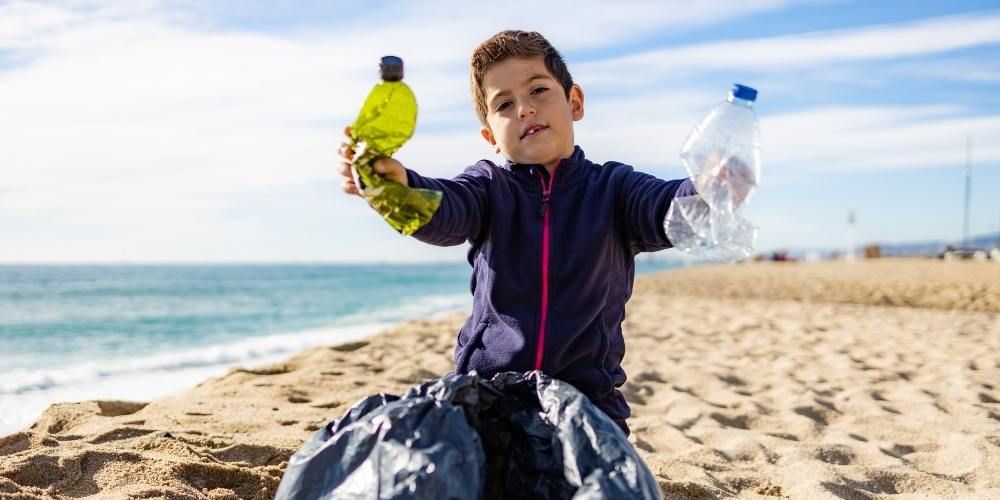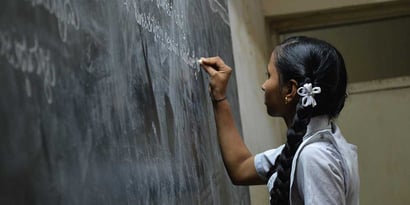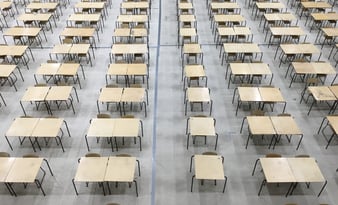Contents
It’s rare that a day goes by without reading some worrying headline related to the state of the planet or hearing a shocking statistic about the Earth’s temperature rising. It’s hardly a surprise, then, that young people’s mental health is being significantly affected.
While shock tactics are indeed effective, they are more likely to provoke panic than the positive action and education needed to bring about real change. As parents, we understand that you are at the front line of trying to maintain the balance between the reality of the environmental situation and the necessity of keeping your child as anxiety-free as possible!
What is Recycle Week?
Having spent much of your time sitting at a desk during the pandemic, the environment is now, more than ever before, a place to seek solace or teach your little ones all about the wonder of nature. 🌳 (Notice we wrote ‘or’, not ‘and’! ) There seems no better time for you and your family to get involved in the annual event that will let your children know that you really do care about their future.
A bit of history
Recycle Awareness Week first started in 2003 and is now in its 19th year. It was designed to unite the entire nation behind a simple, single message: to encourage recycling. The week was organised by WRAP (waste and resources action programme) under the Recycle Now brand.
Present day
Today, the annual event continues to highlight how recycling can play an important part in building a circular system which is able to keep valuable materials in the economy and away from the environment.
According to Recycle Now, in 2021, over 3,000 individual people and businesses joined the 2021 #RecycleWeek conversation. To date, it is the biggest annual recycling campaign in the UK. 💪
This year’s Recycle Week will be happening between 19-25 September and its theme, ‘Let’s Get Real’, aims to challenge recycling myths and perceptions.
How can recycling raise awareness?
Climate change issues are part of the national curriculum in the UK and in April 2022 the department for education announced a new climate-focussed GCSE course. Having said this, there is certainly more schools could do.
The young campaigner Greta Thunberg also had a significant effect on raising awareness of recycling and other environmental issues.
If you want to do your bit, recycling is a relatively easy way of doing so! There’s no doubt that the statistics regarding recycling appear to be much more optimistic of late according to a recent report:
- 88% of households in the UK consider recycling to be the norm
- 52% of people recycled more in 2021 than in 2020
- 18-34 year olds are the top recycling age group 😃
While this is all going in the right direction, there’s still work to do with cross-contamination:
- 85% of us are guilty of contaminating our recycling with things like toothpaste tubes, plastic lids and drinking glasses
- An average of 6.1 items are disposed of incorrectly when people sort out household waste: non-recyclables are put in recycling bins and vice versa
The more people who are able to recycle effectively, the more they will be aware of how this fits into the bigger picture.
Here are just a few ways you and your family can become kinder to the environment by recycling:
|
What? |
Why? |
How is it bad? |
|
Extend the life of your clothes or recycle them |
The production of clothing has a massive environmental footprint |
Water needed to grow crops like cotton, the material dying process and CO2 from transporting them across the world. |
|
Recycle or repair your technology |
50% of the gadgets we use are still working! You can give away your unwanted phones to someone in need. Or repair them yourself or at a repair cafe rather than buy new. |
Much of this technology ends up in landfill. What a waste! |
|
Oil and fat used for cooking |
Many people are still unaware of how they can dispose of or recycle oil. |
Hot oil which goes down the drain solidifies when its temperature lowers.This causes blockages in pipes and fatbergs which harm the environment. In 2019, a fatberg measuring 210 feet blocked a drain in a sewer in Sidmouth. 😨 |
What is World Recycling Day?
Global Recycling Day is held every year on 18 March. It’s mission is:
- To tell world leaders that recycling is simply too important not to be a global issue, and that a common worldwide approach to recycling is urgently needed.
- To ask people across the planet to think resource, not waste, when it comes to the goods around us – until this happens, we simply won’t award recycled goods the true value and repurpose they deserve.
So, if you think there’s more you and your family could do to recycle, why wait until Recycle Week? Now is as good a time to start as any! Chances are your children will be more than happy to actively help rather than just worry about the things they hear or see about environmental problems. If enough families really think about how and what they recycle, it could lead to real, meaningful change to protect the planet for future generations. 🌍









